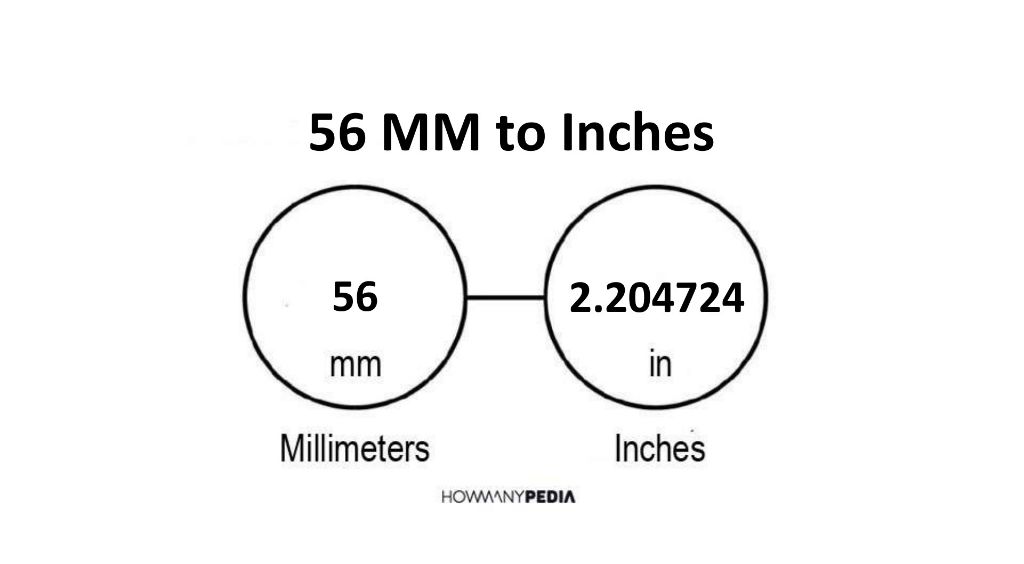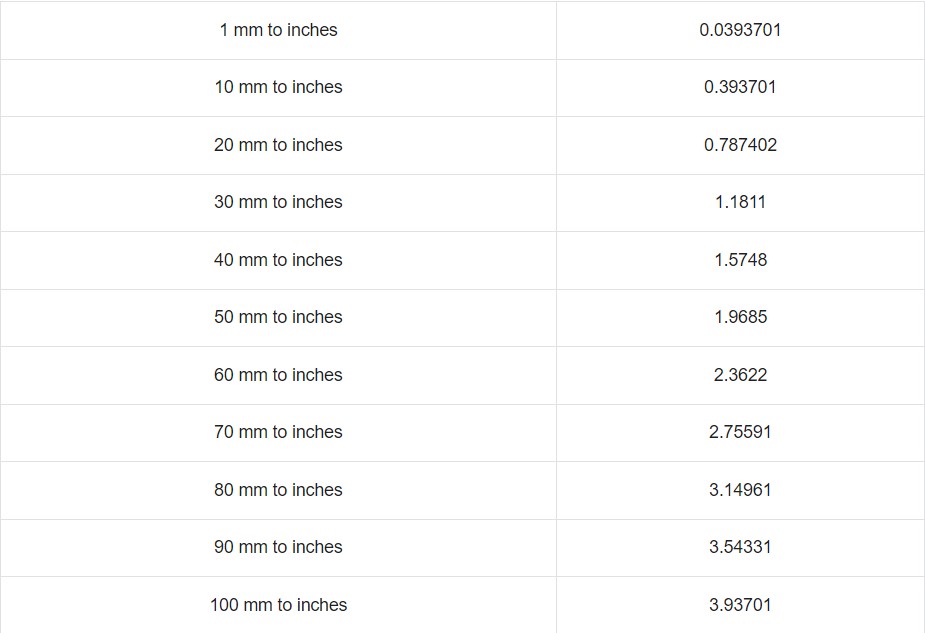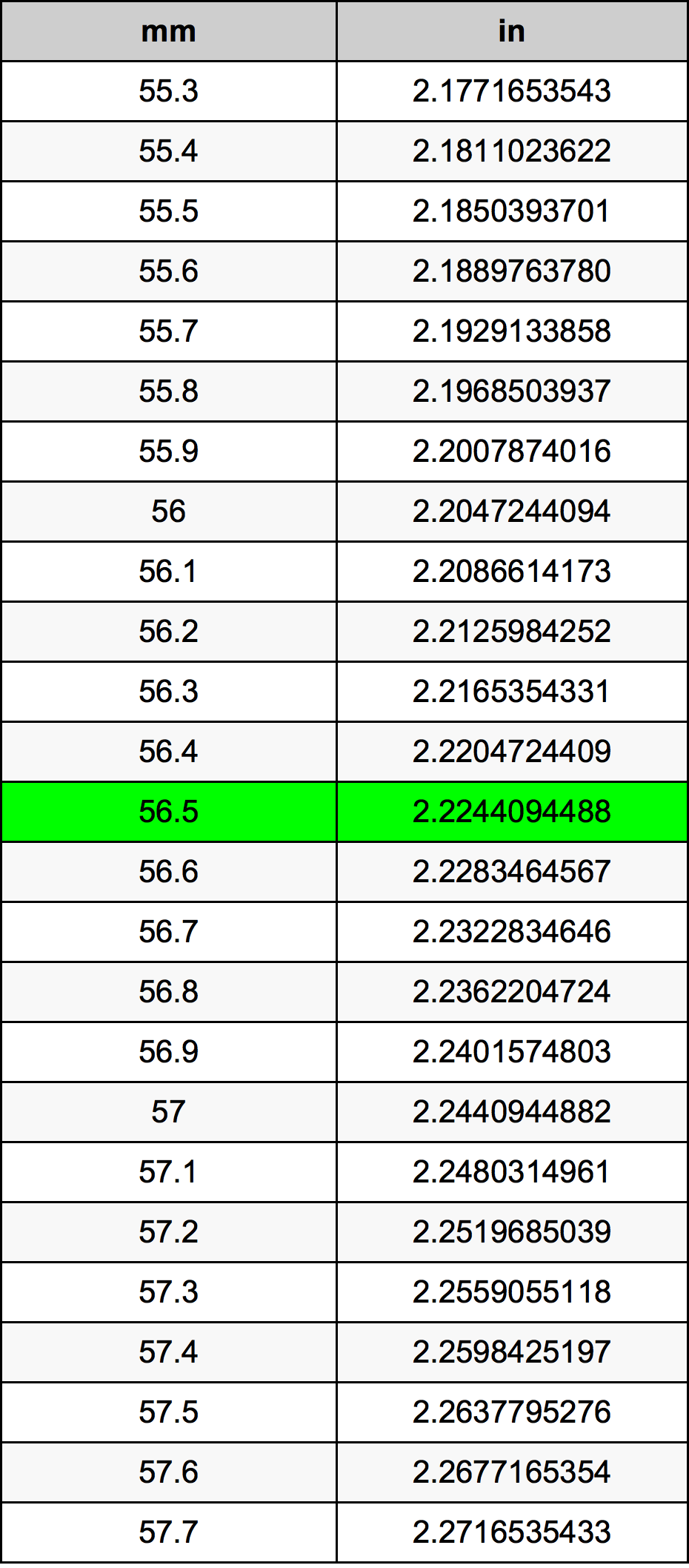Convert Mm To Inches: The Ultimate Guide For Beginners
Are you, like many others, occasionally bewildered by the seemingly cryptic measurements used in the world of firearms, specifically when it comes to bore diameter? The seemingly simple task of understanding bore diameter measurements is often complicated by the use of two distinct systems: the imperial caliber system, which measures in inches, and the metric system, which utilizes millimeters.
This article delves into the intricacies of these measurement systems, providing a clear and concise explanation to demystify the conversion process, ensuring you can confidently navigate these measurements. Let's explore the specifics, and make this process much easier to grasp.
Understanding Bore Diameter Conversions
The world of ballistics and firearms often presents a unique challenge for newcomers, especially when dealing with seemingly straightforward measurements. One such area of potential confusion lies in the measurement of a cartridge's bore diameter. The core of the issue? The simultaneous use of two distinct systems: the imperial caliber system, which measures in inches, and the metric system, utilizing millimeters.
This divergence can lead to significant misunderstandings. Consider the common cartridge designation '.223'. This number, in the caliber system, indicates the bore diameter, which is roughly 0.223 inches. Yet, the same measurement can be expressed in millimeters, making the conversion process crucial for accuracy and clarity.
To facilitate understanding, let's start with a practical example: Converting 5.56 millimeters to inches.
The Conversion Formula
The fundamental principle underlying the conversion is straightforward: 1 inch is equivalent to 25.4 millimeters. Therefore, to convert any measurement in millimeters to inches, you simply divide the millimeter value by 25.4.
Calculation
To convert 5.56 mm to inches, the formula is:
Inches = Millimeters / 25.4
So, Inches = 5.56 mm / 25.4 mm/in 0.2189 inches.
Therefore, 5.56 millimeters is approximately 0.219 inches.
As we've established, 5.56 millimeters is approximately equal to 0.219 inches. This conversion factor (25.4 mm per inch) is consistent and reliable. However, it's important to consider that using more decimal places in the conversion factor will yield a more precise result.
In the case of the .223/5.56, the land diameter is 5.56mm. The land diameter refers to the diameter of the barrel at the points where the rifling, the grooves cut into the barrel's inner surface to impart spin to the bullet, hasn't been cut.
Why this matters
Understanding this conversion is crucial for several reasons:
- Ammunition Compatibility: Knowing the correct bore diameter in both systems is essential for ensuring that the ammunition you are using is compatible with your firearm. Using the wrong ammunition can result in malfunctions, reduced accuracy, or even dangerous situations.
- Technical Specifications: Firearm specifications often use both measurement systems. Understanding how to convert between them enables you to interpret these specifications accurately.
- International Standards: Different countries and regions may favor one system over the other. Being able to convert between millimeters and inches ensures that you can work with measurements regardless of their origin.
The foundation of converting millimeters to inches, rests on this key relationship: one inch is equal to precisely 25.4 millimeters. With this conversion factor, you're fully equipped to transition measurements between these systems.
To convert from millimeters to inches, you can apply a simple formula:Inches = Millimeters / 25.4.
For a practical demonstration, lets convert 10 millimeters to inches using this formula:10 mm = 10 mm / 25.4 mm/in = 0.3937 inches.
Using the formula, D (inches) = d (mm) / 25.4, is all you need for the conversion.
Let's consider some practical examples:
- 5.56 mm to inches: Using our established method, this translates to 5.56 / 25.4, which results in approximately 0.2189 inches.
- 20 mm to inches: Following the same procedure, 20 mm / 25.4 equals roughly 0.7874 inches.
- 56.5 mm to inches: This conversion gives us 56.5 / 25.4, or approximately 2.2244 inches.
- 556 mm to inches: Applying the formula, we get 556 / 25.4, which rounds out to about 21.8898 inches.
Key Considerations
- Approximations: Always be aware that conversions may involve rounding, especially if you're working with a calculator that displays a limited number of decimal places.
- Precision Requirements: The level of precision needed depends on the application. For general purposes, three or four decimal places are often sufficient. For more critical applications, you may need to use more decimal places.
- Tools: Several tools can aid in the conversion, including online calculators and dedicated conversion tables.
Quick Conversion Chart
Heres a quick reference guide for commonly encountered conversions:
- 1 mm to inches = 0.03937 inches
- 10 mm to inches = 0.3937 inches
- 20 mm to inches = 0.7874 inches
- 30 mm to inches = 1.1811 inches
- 40 mm to inches = 1.5748 inches
- 50 mm to inches = 1.9685 inches
- 100 mm to inches = 3.93701 inches
- 200 mm to inches = 7.87402 inches
This conversion process becomes even simpler when you use a conversion table. For example, here is a table demonstrating the millimeter-to-inch conversions for commonly used values:
In Summary
Converting between millimeters and inches is a straightforward process that hinges on the basic conversion factor of 25.4 millimeters per inch. By understanding the formula and considering rounding errors, you can confidently navigate the world of firearm measurements, ensuring you can understand and use the necessary dimensions in both systems.
Whether you are a seasoned shooter or a beginner, mastering these measurement conversions will certainly boost your familiarity and confidence in working with firearms and related ballistics information.


